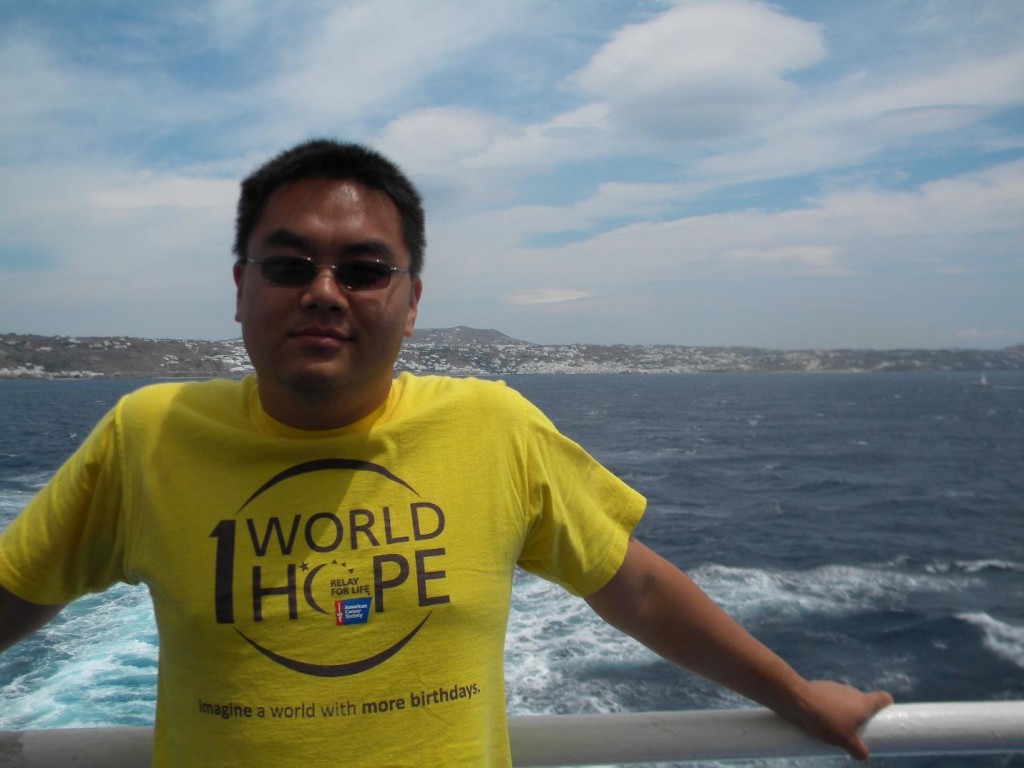 On the surface, asking someone where they come from may not seem intrusive or insulting. But depending on the tone and circumstances, it can be misconstrued and taken wrong. Coming from an Asian American background, I have been asked this question and many others like it more times than I can remember. While it might seem like a positive thing to take interest in someone’s cultural heritage, it can also be incredibly offensive. I have personally experienced inquiries about my background that ranged from genuine cultural curiosity to blatantly insensitive racism.
On the surface, asking someone where they come from may not seem intrusive or insulting. But depending on the tone and circumstances, it can be misconstrued and taken wrong. Coming from an Asian American background, I have been asked this question and many others like it more times than I can remember. While it might seem like a positive thing to take interest in someone’s cultural heritage, it can also be incredibly offensive. I have personally experienced inquiries about my background that ranged from genuine cultural curiosity to blatantly insensitive racism.
About two years ago, a short film was created on YouTube titled “What kind of Asian are you?” I thought the video was brilliant and spot on. I have also been told that my English is very good; in the back of my mind I was thinking, I hope so since it is my first language! The problem I run into when trying to explain my background and answering the proposed question is that I was not born in the United States. I was, in fact, born in South Korea and adopted by White American parents when I was 11 MONTHS old. Then, for the first 10 years of my life, I grew up in Arizona. For the past 20 years, I have lived in West Virginia and would consider myself a West Virginian when asked by people from other states. So, when I am asked where I am from, I usually end up having to explain my life story to answer completely.
Am I Asian? Yes. Am I from Asia? Yes.
Am I American? Yes. Am I from America? Yes.
Am I West Virginian? Yes. Am I from West Virginia? Yes.

Problems often arise when people become obsessed with labels. From my experience, labels vary depending the region of the world, because people view cultural norms and behaviors through different lenses based on their own experiences. Let’s consider a random person’s point of view out in public. When I go out and talk to people here in the United States some people assume that I am from Asia and that I won’t be able to speak English very well. While I was born in Asia, I grew up in the US and English is the only language I can speak 100% fluently. But when I go to a European country and talk to people, some assume that I was born, raised, and reside in Asia, while others will hear my voice and see my clothing and label me as an American.
Being labeled as an American overseas has its own variety of stereotypes and misconceptions that come along with it. Like most stereotypes, American stereotypes overseas aren’t all entirely negative, nor true. However, as an American male going abroad, there were some I had to deal with personally. Automatically, there is the assumption that you are a tourist, and while this may be partially true, the native people will not necessarily see the academic focus of your experience. There is also a stereotype that Americans are all rich and spend lots of money. While generally false for student travelers, most American tourists who travel overseas will have extra money to spend and it may seem lavish to people in other countries. Anyone preparing to study abroad should be prepared to encounter these and other stereotypes while interacting with people overseas.
Growing up as an “outsider”, even in my own home, I’ve always tried to figure out how I fit into the world. Seeing the diversity in people, like race, religion, gender identity and sexual identity, became an academic fascination for me. My fascination with other people and cultures gave me the aspiration to travel to as many places as I can throughout my lifetime so that I may strive to see, experience, and learn as much as I can from the world. During my undergrad I chose to go on two vastly different faculty-led study abroad experiences with very knowledgeable and supportive professors. Being a hopeless romantic, I have had a strong interest in French, the language of love, so my first study abroad program was to France to study the language and culture. My second program was influenced by my passion for people and cultures, traveling on a month-long whirlwind adventure to The Netherlands, Belgium, Italy, Vatican City, Greece, and Ireland to study political science, history, and culture. During both academic experiences, I participated in host family stays and both host families asked me where I was from and, of course, I had to explain my background in depth to them. Throughout these experiences, both host families treated me with sincere kindness and were very warm and welcoming. The surprising, yet comforting part was, while they asked me tons of questions, the questions were about the United States and being an American, not about being from Asia or how I learned to speak English so well. They were more amazed when I could speak French with them and we could have semi-fluent conversations together.

Because of my metamorphic experiences abroad, I chose to focus my graduate school research on why males do not study abroad as often as females. This was of great interest to myself because of my background and my ardent ambition to go abroad and experience the world. The first time I learned that men are only about one-third of the students who study abroad, I was honestly shocked and amazed. I could not imagine why men would choose not to see more of the world. From the feedback I received from my study, I learned that one of the primary reasons many college men won’t go abroad is the group, or “Bro” mentality. This issue has been addressed by numerous articles and studies, including Men, Travel, and Growth. All college students need to gain a sense of belonging and an affinity for something in order to be academically successful at an institution. In many cases, the sense of belonging is with a friend/peer group and the affinity is with an organization or the institution itself in some manner. Most males tend to join clubs, organizations, athletic teams, or fraternities and become immersed in that world, sometimes not even considering the possibility of studying abroad.
I would theorize that because of my background and my “outsider” perspective in many social situations, I found my sense of belonging with many different peer groups and that my affinity during my undergraduate experience was taking advantage of the opportunities the institution provided, like study abroad programs and other academic outlets. I also have a fiery passion to learn more about the world and how I fit into it. These unique ideals are apparently, uncommon amongst most young college males in the United States.
It has taken me many years of searching and study, but I have a much better understanding of who I am and where I fit into society and the world because of it all. However, I know I’m not where close to finished and who we are and how we fit into society can change drastically very quickly. I purposefully explored my cultural heritage and the impact it has had on my life and examined a multitude of aspects of my personal and social identity. If anyone who reads this is questioning whether to go abroad or not, especially if you’re a male, I would challenge you to do so. I can promise that your worldview will never be the same and you will either feel a greater sense of who you are, or at least have the new motivation to learn more about it.
 About the Author: Brian Henry was born in South Korea, adopted at 11 months old, raised in Arizona, and has lived in West Virginia for the majority of his life. He has completed two degrees: a BS in Political Science with a concentration in International Studies and a French Studies minor and an MA in College Student Development and Administration. His Asian American background, undergraduate study abroad experiences, and personal search for self within the world have fueled his passion for the field of international education, and specifically study abroad. Brian likes to live by the motto: Live life for today, because yesterday is gone and tomorrow may never come. Because of that mantra, he will try anything once, maybe twice, in his life and will enthusiastically seek out new experiences and push himself to take chances and make mistakes. He is a singer, writer, poet, and photographer in his free time and enjoys hiking, playing tennis and racquetball, and loves both Star Trek and Star Wars! Brian has a keen interest in studying cultural and warfare history. He also has a passion for advising, counseling, and helping others through volunteering and community service organizations. He is purposefully driven and adamantly searching for ways to contribute to the fields of international education and study abroad. Feel free to contact him at [email protected] if you would like to learn more about his career search and experiences abroad. He welcomes any feedback and always enjoy making new connections.
About the Author: Brian Henry was born in South Korea, adopted at 11 months old, raised in Arizona, and has lived in West Virginia for the majority of his life. He has completed two degrees: a BS in Political Science with a concentration in International Studies and a French Studies minor and an MA in College Student Development and Administration. His Asian American background, undergraduate study abroad experiences, and personal search for self within the world have fueled his passion for the field of international education, and specifically study abroad. Brian likes to live by the motto: Live life for today, because yesterday is gone and tomorrow may never come. Because of that mantra, he will try anything once, maybe twice, in his life and will enthusiastically seek out new experiences and push himself to take chances and make mistakes. He is a singer, writer, poet, and photographer in his free time and enjoys hiking, playing tennis and racquetball, and loves both Star Trek and Star Wars! Brian has a keen interest in studying cultural and warfare history. He also has a passion for advising, counseling, and helping others through volunteering and community service organizations. He is purposefully driven and adamantly searching for ways to contribute to the fields of international education and study abroad. Feel free to contact him at [email protected] if you would like to learn more about his career search and experiences abroad. He welcomes any feedback and always enjoy making new connections.
